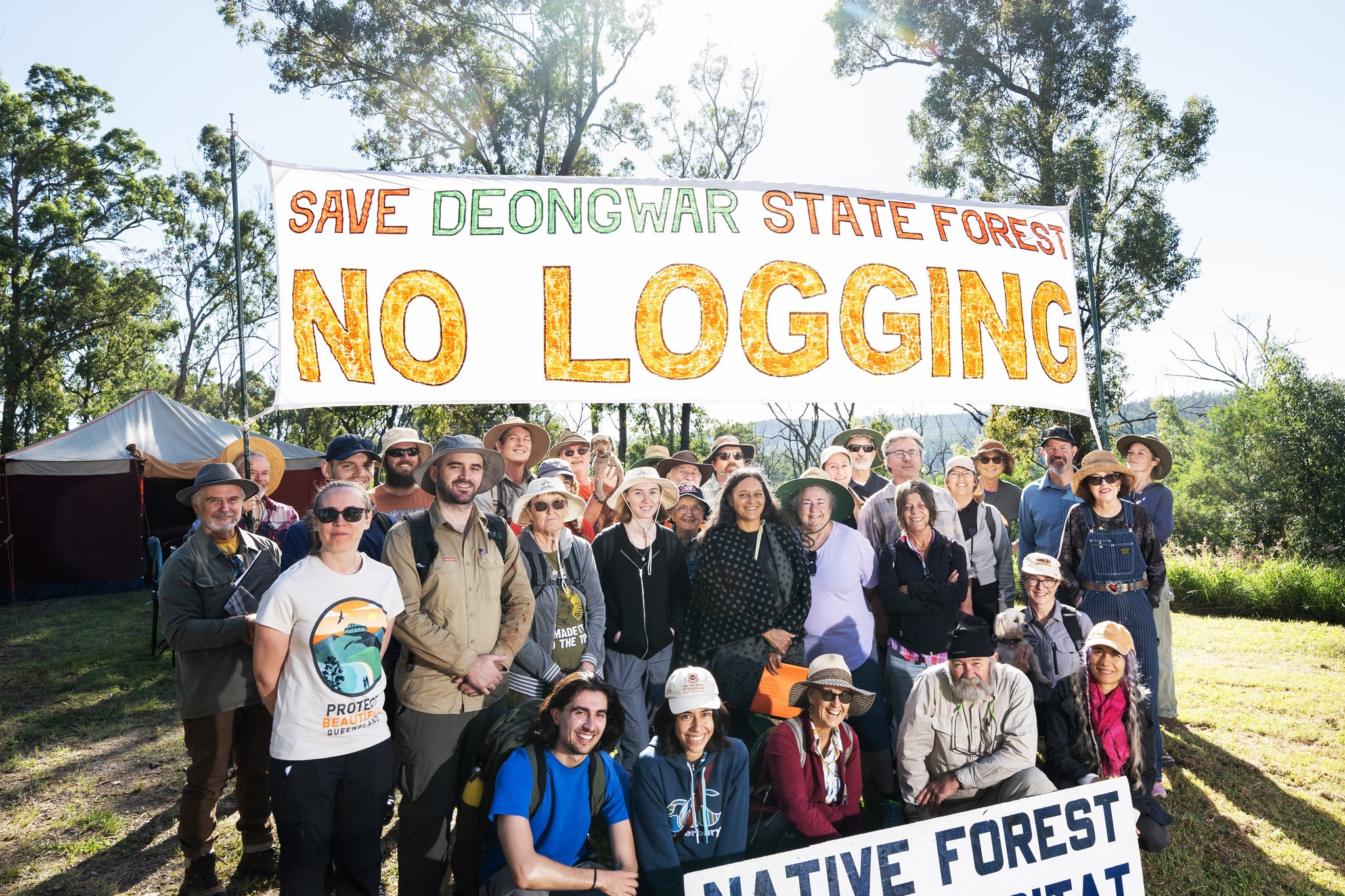News
8 May, 2024
Conserving Deongwar
Momentum to permanently conserve Deongwar is growing after locals gathered for a weekend of citizen science, documenting unique animals like the greater glider that call the state forest ‘home’.

More than 40 people took part in the ‘Bioblitz’ survey in the forest near Esk on Saturday April 27, using the iNaturalist phone app to record observations.
“We found many unique plants and animals in a spotlighting walk on Saturday night, and even spotted an endangered greater glider,” Queensland Conservation Council Nature Organiser Hayley Troupe said.
“These amazing animals live solely in the trees, they are the largest gliding possum and their survival depends on protection of habitat like Deongwar.”
Deongwar State Forest contains around 4700 hectares of intact, high conservation value, remnant native forest.
It’s home to 146 protected native animals including the long-nosed potoroo, powerful owl, black-breasted button-quail, brush-tailed rock wallaby, white-throated needletail, glossy-black cockatoo, red-tailed cockatoo, koala and greater glider.
After logging officially stopped at Deongwar at the end of March, attention is now focused on officially converting the land to conservation.
Save Deongwar State Forest coordinator Max Fulham said Deongwar was poised to be permanently protected, after a long history of commercial exploitation.
“Growing this forest back to maturity will enable it to achieve its full potential to provide the ecological resources necessary to secure a future for our large parrots, owls, gliders and koalas,” he said.
Mr Fulham said while logging operations in Deongwar had ceased, “the Save Deongwar State Forest community group will continue to strongly oppose any proposal that would allow it to be commercially exploited in the future, due to the adverse impact selective logging has on forest health and protected native species”.
Dungibara traditional owner Peta May said the logging of State Forests such as Deongwar for the past 100 years would leave a scar on the landscape forever.
“However, we now have the chance to move forward and begin the healing process in these protected areas,” she said.
“Consultation and facilitation by traditional owners will be a crucial aspect of this healing.”
Darling Downs Environmental Council coordinator Ahri Tallon said many of the group’s members took part in the BioBlitz.
“There is a lot of support from our supporters and member groups to see Deongwar transition into a protected area to support endangered species such as the Greater Glider and provide a cooler temperature habitat to animals in the region,” Mr Tallon said.
Protect Beautiful Queensland Alliance member and National Park Association of Queensland CEO Chris Thomas said protecting Queensland’s natural areas in well managed parks was “the best gift we can give to future generations”.
“Deongwar is much loved and used by the local community, and conserving it will give even more people the opportunity to spend time here,” Mr Thomas said.
Care4esK president Darren Bate said Care4esK recognised the importance of having State Forests protected.
“These areas are often significant parts of the local landscape ecology,” he said.
“They provide large patches of habitat for refuge, climate resilience, movement corridors, and can nurture source populations for many species to disperse from.
“Land of this type offers a wealth of biodiversity, that must be mindfully preserved for our future generations.”

